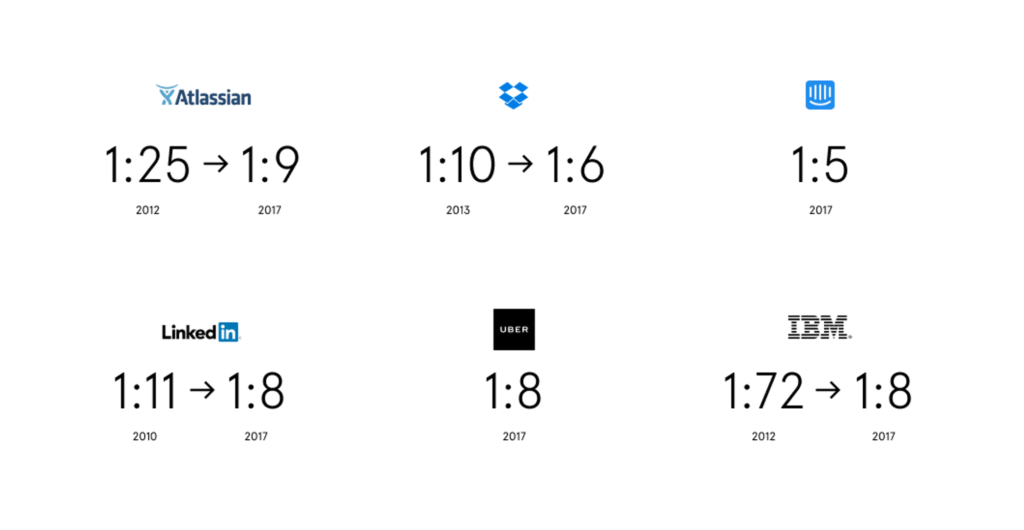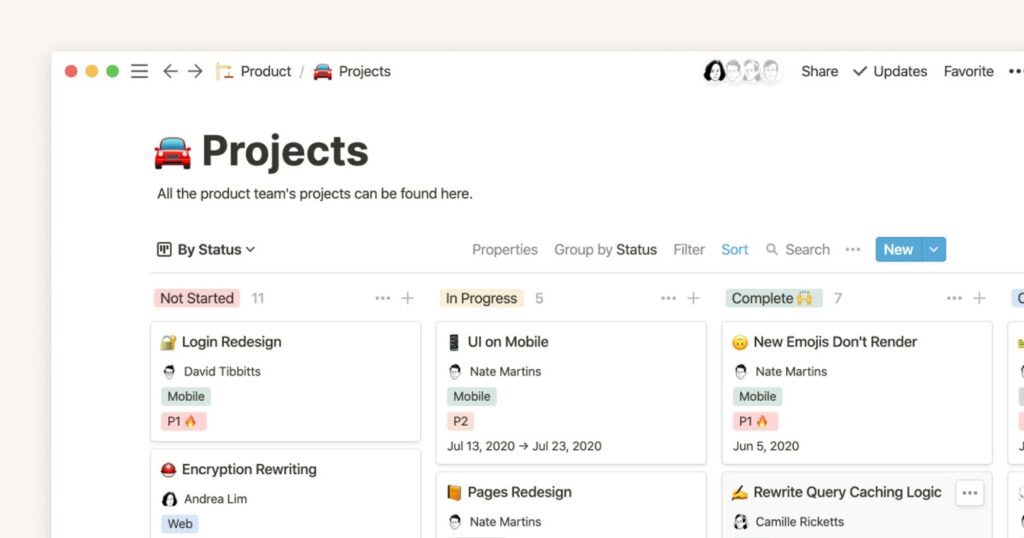The Product Probe: Notion
This was written in 2020.
I remember showing my wife Notion the first time. All I received was a dismissive response that sounded much better sung by Julian Casablancas – ‘is this it?’

Julian Casablancas doing his work.
It really only takes 5 minutes to dive deeper before understanding this has the potential to be powerful. You can then spend another 5 months working out how this will organise your entire life, and probably that of your whole teams.
This is the beauty about Notion, it can be as simple as a blank piece of paper, or as complex as having 50 databases talking to and interacting with each other.
The Notion mission and vision
Their mission is to empower everyone on the planet to be able to build their own tools. They want to enable every person and business to tailor software to their own problems, so the world will be better at solving its problems.
What it actually does
Basically, if you want to keep a daily to-do list, you can do that. If you want to build your personal website in beautiful design and share it with the world, you can do that. Build a habit tracker, build a shopping list (incl items), or build a kanban board for your team’s next product launch – that can all happen in here.
You can take notes, insert images and videos, or start a database by simply pressing the backslash. Notion wants to be a ubiquitous product that everyone can use, for everything.
What problems does it solve?
On a personal front, you may think of Notion as an organiser of all your thoughts. It’s like your old notepad on mega-steroids, or Notes on your phone on steroids, or Evernote on just half a dose of steroids. Want your personal thought space to look beautiful? Notion uses a PostGRESQL database that can be customised to anyone’s productivity needs, which is simply a way to say it’s massively customisable. You can build an unbelievable amount on top of it with little to no coding experience.
On a team level though, Notion can be your thought and idea warehouse. Like Snowflake is for all your invisible data, Notion can be for all your tangible ideas. Rather than setting up and toggling between 5 programs to run your ad campaign, here you can store everything you need in one place.
Key insight
Notion has built its following on the ease with which you can write down your thoughts, but the power of controlling your databases. The use of the backslash to start any block they have is crucial in hooking users in quickly. Within the click of one button, Notion can have an impact on you and leave you slightly warm and fuzzy.
Notion’s community-led growth has been a thing of beauty as well. Rather than build a platform that developers could build on, and transact with less tech-savvy Notion users, Notion has opened its product up to be shared far-and-wide! These critical growth loops built into the product from day one have assisted with its viral growth.
They’ve forgone revenue from a potential platform option, for user growth. And if you care to look at the Notion subreddit, or a host Notion-nuffs on Twitter like Marie Poulin, you’ll see what I mean.
Why now?
As you have read, Notion relies on simplicity at its core to be successful. Has it always been so easy to develop simple user interfaces? Well, not necessarily. The past 5-7 years has seen a relentless focus on UI and UX design. A quick look at the designer:developer ratio below will prove this point.

So unsurprisingly, with this focus on design, design and the surrounding front-end development practices have improved – and not just by a small amount.
Compounding knowledge can lead to great things. Technically, Notion could’ve been built years ago, but would it have been as well received? I doubt it.
Typical users, use cases and jobs-to-be-done
While the farmer or electrician that jumps online once a week to complete invoicing probably won’t be too high on their target user documentation, Notion still has an enormous amount of potential users and use cases.
Their target customer is likely to be in the tech industry or people in the rapidly growing creator economy. A place to manage your blog research and release times? Notion. Managing all your upcoming YouTube video shoots? Notion. Want to replace your invoicing and CRM as a small dry-cleaner? Notion.

Search ‘Notion product review’ on Google and you’ll find umpteenth blog articles dedicated to how it has changed peoples’ lives.
Market and trends
Notion are one of many companies jumping on the collaborative-productivity train. Positives: it’s a huge potential market of users and once you’ve got a customer hooked, it’s easy to increase their lifetime value. Negatives: there are a lot of players in the space. Unless you build the product into something that businesses and teams use religiously, monetisation can be a challenge.
A trend that is in its very early stages, but I believe is the most nascent part of the SaaS world at the moment is Deep Collaboration, written about here by Jake Saper. (You can hear him talk about it at length on the Acquired podcast too if you’re a paying member). Simply put, with all the tools people use, there’s an enormous amount of data loss switching between these programs. On top of that, it’s impossible to get in flow with all this switching.
Productivity and collaboration has evolved separately. The race is now back on for apps to combine these areas and get 100% of the user on their platform. Whoever succeeds at this, will succeed in a very handsome way.
Examples of tools that are already focused on this way of operating include Figma, Maze, Layer and Cube (I’m not aware of players in the space that don’t have a 4 or 5 letter, short business name. I’m sure they exist). So Figma for example now allows the organisation to focus on the design process together. They haven’t built a product just for designers. This is not to say the designers job is redundant, actually less-so now. It helps them grow in the organisation and have contact with all types of management.
So this is a long-winded reasoning of why I believe Notion should focus their attention on this. (More on that soon)
Revenue model
Notion’s pricing was initially based on the number of blocks a user would use, but it’s since increased the amount you can do for free (great for the everyday note-taker). For the individuals, there is a free plan still, which can take you a long way. Or a professional plan at $4 a month which is the same as the free plan, but more downloads, and more guests you can invite.
Where the big bucks are earned though are the company deals. They promote Notion as a great tool for 20 to 2000 person teams. The Team Plan is $8 per month, per month and there is an Enterprise plan. These pricing plans are a real winner for everyone. The small business can easily afford it in the early days, and if they grow, they’ll be happy to pay for a product they use every day. And for Notion, they are building a product to help teams grow, and benefit greatly if and when these teams hit those growth levels.
Alternative products/solutions
Because of the two levels (individual and team) both playing an important role in Notion’s user base, it comes with two sets of competitors. You can say that on the personal front, the competitors include Evernote, the good old notebook and even Notes on your phone. On the company front though, Notion’s primary competitors include Confluence, Coda, Trello and Asana.
Where should Notion grow?
To differentiate itself from these competitors, Notion needs to embrace Deep Collaboration. All focus should be working on increasing the amount of active time users spend on the site.
Notion needs to own the whole workflow process, making it a one-stop shop for teams. So if you want to run an entire design process from scratch, you should be able to do it all without leaving Notion. A designer should be able to start a Kanban board that has cards populated with user research tools, a Survey Monkey form and Figma wire-framing. This product ideation to implementation could then be taken care of without leaving Notion.
Want to run an ad campaign for your e-commerce store? Well start with a kanban board and calendar, bring in video editing software and better data analysis function, and there you are.
This is a classic win-win where users can remain in flow, and Notion captures this entire attention.
I’d also like some mobile functionality improved. It looks as though the mobile app has been optimised for reading, rather than writing. But when you think about the core strength of Notion, it is the ability to write down your thoughts rapidly. Given the ease of the backslash on a desktop to bring up any block you want, the fact you tap the + button, then look through a massive list of options, then click to select, is all a bit laborious (relatively speaking). Bringing a /- type behaviour to mobile makes sense to me. Then they could bring up the 3 most popular options on that screen to quickly click and write.
The final big one that needs addressing is the collaboration function, and ability to leave detailed notes on the piece of work. There are a million other small things I’d like to add (recurring tasks, weekly calendar mode, hashtags), but these above are more likely to move the needle.
